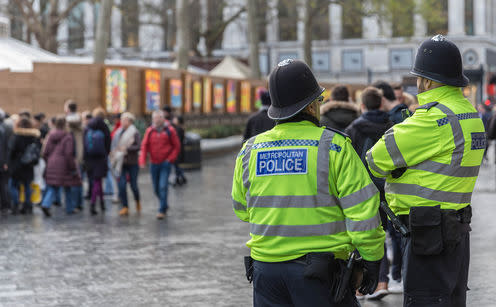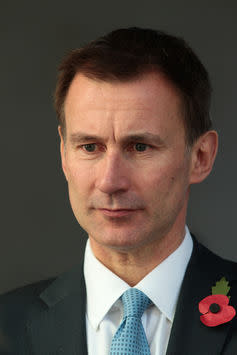British police dealing with mental health is a sticking-plaster solution that doesn't get to the heart of the problem

Mental health services in the UK have suffered years of underfunding. As a result, there aren’t enough mental health professionals to cope with the rising demand for services, and waiting times to access mental health services are getting longer. To ease the pressure, other public services are increasingly being relied on to identify and respond to people with mental health problems – in particular, the police.
The police service is implementing a number of initiatives to ensure that their officers are equipped to respond to people with mental health issues. For example, “street triage” has been rolled out across a number of police forces in England. The aim is to improve how officers respond to people with mental health problems. But should the police and other public services be used as surrogate mental health services?
In our latest research, published in PLOS One, we evaluated mental health training for frontline police officers. Our findings suggest that training does improve officers’ knowledge, attitudes and confidence in dealing with incidents involving mental health, and may improve how mental health incidents are recorded.
With an estimated 15-20% of police time spent dealing with incidents associated with mental health, it is important that police officers are able to identify people with mental health problems effectively. But being able to identify mental health problems is only valuable if there is a clear pathway to provide the necessary help. There often isn’t.
Fragmented approach
In January 2017, the UK government agreed to invest an additional £1 billion in mental health services by 2020, ending years of funding cuts. There are also numerous government policies that aim to improve UK mental health services and ensure that mental health is given equal priority to physical health (so-called “parity of esteem”). However, the gap between these goals and services currently provided is vast and needs more than bulk investments and visionary policies.

There has been much talk by the government in recent years about integrated health and social care. But what is really needed is for all frontline services to work together to produce practical solutions to our mental health crisis. This is difficult in the current climate of austerity where commissioners are faced with tough decisions about which priority area to fund. The competition for funding and the target-driven nature of our public services ultimately encourages services to compete with one another rather than collaborate to find solutions to what are often common problems.
Initiatives that are developed to help services respond to people in need of mental healthcare are usually funded by bodies or organisations that are set up to improve the design and delivery of individual services; for example, health or policing or education. The result being that significant effort is spent trying to improve issues, such as mental health, with single-service solutions.
Another concern is that some initiatives are being introduced without enough evidence to know whether they will work or not – street triage being a case in point. With limited funding available, surely it would be better to put resources into something that is proven to work?
A collective response to mental health
Exploring ways the police can respond to people with mental health problems raises broader issues about our collective response to the mental health crisis and the inadequacies of current service provision.
Mental health is not something that the police, teachers or GPs can be expected to deal with in isolation. The complexities of mental health require people to be seen by trained mental health professionals and for public services to work together to ensure people are able to access the care they need when they need it.
Current solutions provide stop gaps and quick fixes, and don’t get to the heart of the problem: there are not enough services to meet demand.
Instead of providing sticking-plaster solutions, we need a truly collective response to mental health, otherwise we will continue to see people with mental health problems being passed between services or unable to receive treatment because mental health services are overstretched or unavailable.
This article was originally published on The Conversation. Read the original article.

Arabella Scantlebury does not work for, consult, own shares in or receive funding from any company or organisation that would benefit from this article, and has disclosed no relevant affiliations beyond the academic appointment above.

 Yahoo News
Yahoo News 